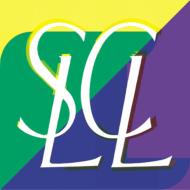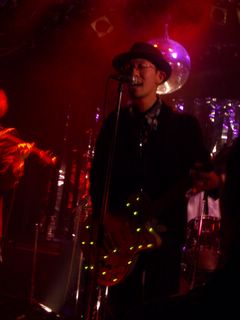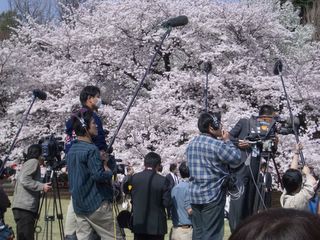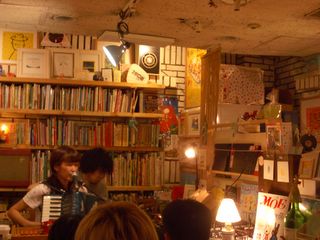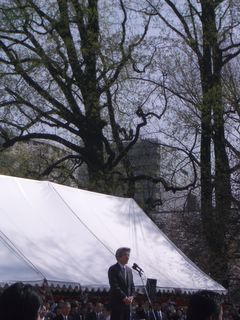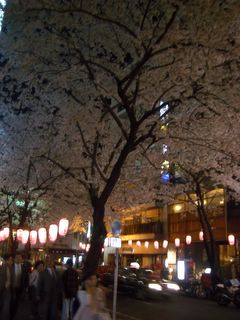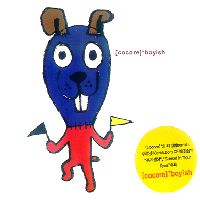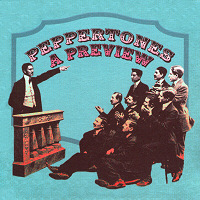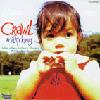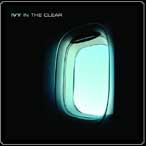I don't think Apple is telling iPod customers everything they need to know. There's a lot of weirdness about the iPod. For example, most people believe that the iPod's shuffle function picks songs by random. That, I'm pretty sure, isn't the case.
Now, to back up a bit for people who don't use iPods, the iPod has a thing called 'shuffle' where you can listen to all your songs in 'random' order. It's fun at first, but after a while it gets a bit unsettling. The shuffle command, you see, chooses songs well. You almost never get, say, a hardcore punk song after, for instance, a church hymn. The iPod usually gradually eases you into different kinds of music, going little by little from soft to loud, mellow to intense, and so on. In other words, it can't be random.
So what's going on?
I'm no IT engineer -- I couldn't assemble a transistor radio -- so here I'm going to have to use metaphors to explain how I think the iPod works. The gadget is like a huge library of singles. On the library payroll are a bunch of tiny dwarves. Everytime you press 'play' on a song, one of the dwarves scurries to find the single you requested, and puts it on the record player. That's how you hear the songs.
But there's one dwarf in the staff who has a Gift: he has a genuine, uncanny ability to dee-jay records. When you put on the 'shuffle' function, you're actually telling this dwarf -- let's call him DJ iPod: do the rest. And he does. He's good. He knows how to spin those disks to make you not want to stop listening.
Anyway, to test my
dwarf-DJ-in-iPod hypothesis, I decided to observe how the songs were chosen tonight when I turned on the shuffle function.
I started with
the Germ's We Must Bleed, because you have to begin somewhere, and I thought it would be a good challenge for DJ iPod: what will he choose next in my mostly punk-free song library?
He picked:
Syrup 16g's Roller Met. A good call. While Japan's Syrup 16g isn't punk, the band is certainly hard rock, and one could argue the two bands share a certain attitude of nihilism. Off to a good start. What next?
Next:
Travis's Turn. Nice! This is in line with my hypothesis: DJ iPod went from punk to hard rock to the more mellow rock of Travis in a smooth progression. Plus I have a feeling the DJ knows I haven't listened to Travis as much as I've wanted to because I've been busy with Japanese music. I'm looking forward to the next song.
Which is: Japanese songstress
Misako Odani's Boku no E ('My painting'). That has moved the mood completely to mellow and pop from the initial punk of the Germs. Impressive. And, again, this is an Odani song I haven't listened to that much.
With the next song, DJ iPod appears to want to make things more upbeat. But not so abruptly that the transition seems unnatural. He picks the
Cymbals' Air Guitar. The carefree singing of the Cymbals' Asako Toki is a good follow-up to the intense, passionate voice of Odani, like fruit after prime ribs.
Next:
Husking Bee's A Single Word. The change to rock seems a bit sudden, but it works. And I hadn't listened to the Japanese band's song in a while and had half-forgotten how good it is.
Next:
Lucy van Pelt's change. Now things are starting to get a little strange. Lucy? The Japanese guitar pop band (now called
advantage Lucy) doesn't share much with Husking except that both songs were recorded in the late-90's. Hmm. What's next?
BLACK SABBATH'S TOMORROW'S DREAM.NO!!!No! That's just perverse! Black Sabbath following Lucy?? That's just not right. I can't know, but I have a strong feeling that never before in history have these two songs been played one after the other in a music player anywhere...
Here I think DJ iPod was either asleep at the wheels, or some drug he took earlier had started to kick in. Or... my hypothesis is starting to look somewhat shaky. Worried, I wait for the next song.
Which is:
Husking Bee's Day Break. Didn't we just listen to Husking? The transition is also a little rocky, though that may be inevitable after Black Sabbath.
Next:
Art-School's Charlotte. Nice one. The DJ dwarf is getting back in shape -- Art-School is, like Husking, emotion-packed Japanese rock, and this DJ move makes sense.
Next:
Misako Odani's I. I'd complain that we just listened to Odani a few songs back if it weren't for the fact that this transition is unexpected, and brilliant! One sort of passion melting into another. Good stuff, DJ!
Here the DJ decides to be adventurous, and puts on a song by a Korean band,
Cocore, but it's in Hangul so I can't read it. But it works.
The DJ decides it's mellow-out time with the next song, and puts on
Kuchu- Ko-dan's Kyu-jitsu ('Day Off'). It's as if he's reminding me that I really ought to listen to Kuchu- Ko-dan more. They are a great girl pop band, but I hardly ever listen to their stuff for some reason.
Next:
Syrup 16g's Mouth to Mouse. OK, good transition, but Syrup 16g again?
Next:
Unicorn's Elegy. This is one of those albums I have in my iPod that I've never listened to, but haven't cleaned it out due to laziness. The pop song by the old Japanese band is actually not bad. Maybe I should go back and listen to the full album.
Which is followed by:
The Clash's Remote Control. And then:
Husking Bee's Shinkyu- Dynamism. Husking Bee, again?? It's the third time Husking has come on in the space of about fifteen songs.
The next song has a gorgeous acoustic guitar start, and I wonder what is it, until I hear the deep, raspy voice of the male singer. Right away I know it's the U.S. band
Tangerine's It's Focus, from a CD the guys sent to me.
Next is early
Art-School, the song
Negative, which has a garage band feel and works well after Tangerine.
At this point, DJ iPod decides to play a few Western pop songs in a row, starting with
Happydeadmen's The Seas Are Sailed, followed by the
Lucksmiths' What You'll Miss, and then, another Lucksmiths song (!),
Stayaway Stars (I mean, if you think the shuffle function is truly random, think about what a small probability there is of two Lucksmiths songs randomly playing back to back, when I only have about 12 of their songs out of 3,000...).
The final song that comes on for this experiment is
Luminous Orange's Fall Again, which matches the mood of the Lucksmiths song that came before it.
If you're still with me, I think I've made my point that a brain, and not randomness, is behind the iPod's shuffle function. What do you think?
